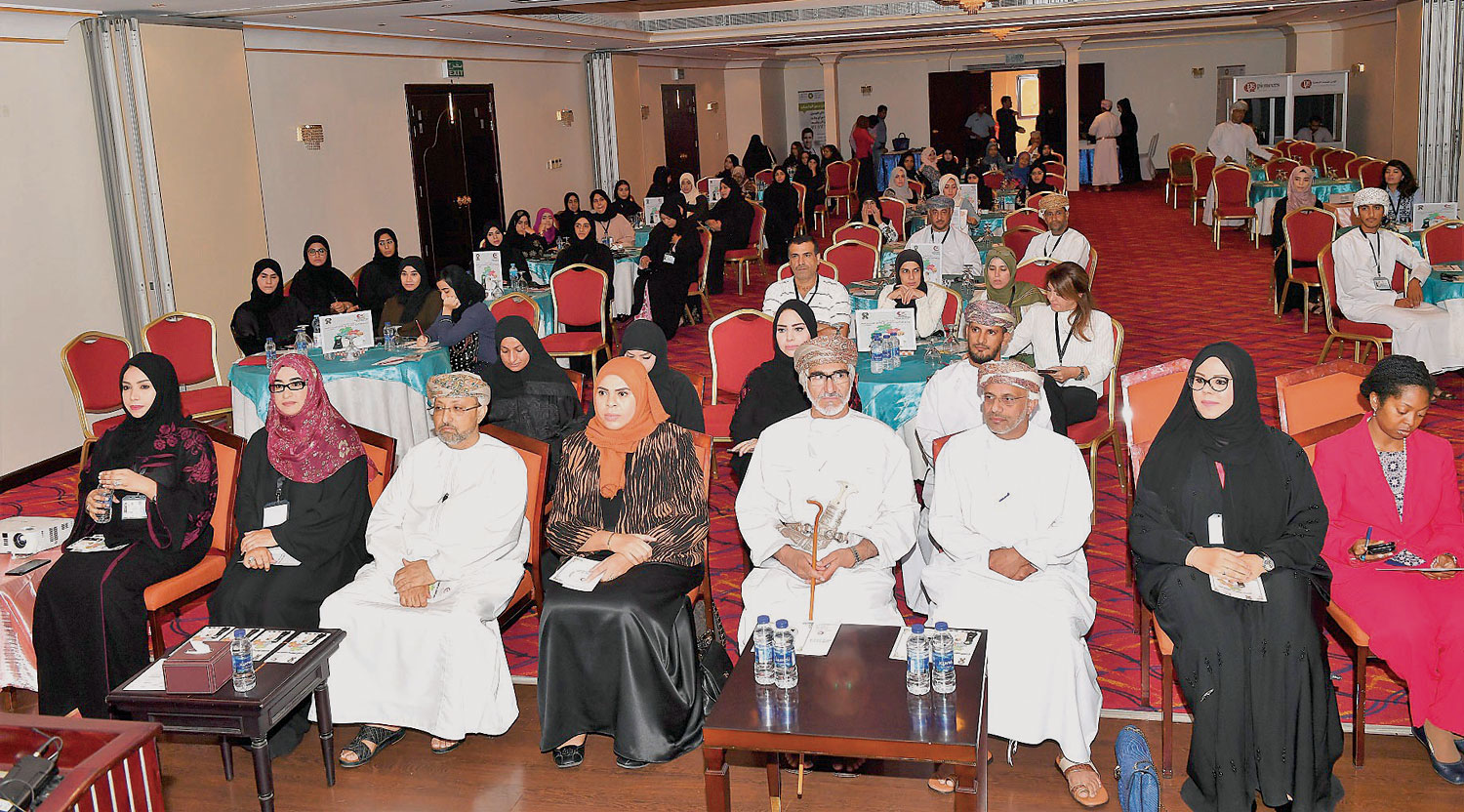

Muscat, Oct 15 - Apart from training staff in primary healthcare, the Ministry of Health (MoH) is involving the parents of autistic children these days, said Dr Said al Lamki, Director-General for Primary Health, MoH.
“Parents are also provided with equipment with which they can detect early signs of autism in children and take them to the nearest health centre, if need be,” Dr Al Lamki said at a workshop on ‘Strategies to Deal with Autistic Children for Parents’ at Majan Intercontinental Hotel, Muscat.
MoH, represented by the Mental Health Section in the Department of Non-Communicable Diseases, organised the workshop under the patronage of Dr Ali bin Taleb al Hinai, Under-Secretary for Planning Affairs, MoH.
Dr Al Lamki told the Observer: “We have started integrating the autistic children in primary healthcare from the ‘pink card’ stage. Now we can detect signs (of autism) at the health centre at the age of three.”
When a child is diagnosed with autism without any organic cause, he or she can be referred to the Ministry of Social Development for rehabilitation. After the age of six, the child can be involved with the Ministry of Education.
Organic causes can be due to mental retardation or other syndromes. Some development issues need rehabilitation rather than medical intervention.
MoH has included Autism Spectrum Disorder (ASD) in its Five-Year Plan, while ASD is also part of primary healthcare. At present, the ministry is helping parents deal with children with ASD.
The workshop was held in partnership with May Institute of Boston. It will be followed by another two-day workshop in Salalah.
The workshop included lectures on autism, ways of improving prosocial behaviour, decreasing challenging behaviour as well as alternative and augmentative communication.
According to Dr Ralph B Sperry, Chief Executive Officer of May Institute, research has proven behavioural treatment has been the most effective approach in treating autistic children. “When they can communicate, they get better. We now know how to help children with autism overcome many of their difficulties such as communication and social interaction.”
Dr Sperry said the other important message is there are many methods that families seek which are not really helpful. “We have conducted researches to find out what kind of methods are useful and what are not. It has been proven that behavioural approach, now used worldwide, is the most successful approach.”
Behavioural treatment is an educational approach. “We help children learn what other children do naturally such as how to communicate, how to brush teeth or how to ask for things. For children who do not communicate, we teach them sign language. Once the child learns to communicate, a lot of other problems disappear because they can ask what they want.”
Early screening and diagnosis can make a difference, believes Dr Ameera al Raidan from MoH.
“More the screening, better the chances of picking up cases early, which will result in better outcomes for the child and his family.”
One in 68 children (1.5 per cent) in the country has been diagnosed with autism. The number of diagnosed cases reached 600 at Al Massarah Hospital and 800–1,000 at Sultan Qaboos University Hospital.
Autism is a neuro-developmental disorder in which a child has difficulty in acquiring behavioural or social skills. It appears in the first three years of the child and lasts throughout the life.
Lakshmi Kothaneth
Oman Observer is now on the WhatsApp channel. Click here



